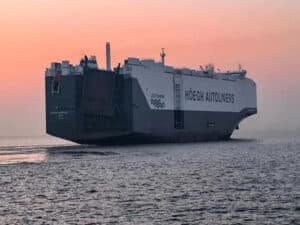
Study raises new questions on methane slip
Written by Nick Blenkey
MARCH 1, 2016 — A study just released by the U.S. Maritime Administration is likely to add to the debate over the relative merits of the Diesel cycle and the Otto cycle in engines burning liquefied natural gas (LNG) as a marine fuel.
The study quantifies methane slip and fugitive emissions from using liquefied natural gas (LNG) for vessel operations and bunkering and was completed in partnership with the University of Delaware and the Rochester Institute of Technology. It builds upon earlier work identifying life cycle emissions associated with LNG use using a “well-to-hull” analysis.
According to the study, two key findings emerge from the research.
The first is that methane slip is a very important factor that can determine whether LNG systems will lead to GHG emissions reduction or increases compared to conventional fuels.
In the case of compression ignited [Diesel cycle] LNG systems, methane slip is well controlled, and the research shows clear GHG emissions advantages compared to conventional fuel (even when routine bunkering leakage assumptions are loosened). However, in the case of spark ignited [Otto cycle] LNG systems, methane slip is more significant, and can actually negate the advantages of the LNG system.
In the spark ignited cases, emissions from the LNG system were higher even in cases where no bunkering leakages were assumed.
The second important finding is that routine bunkering leakages can have a disproportionate impact on overall GHG emissions due to the high volume of natural gas throughput and the high global warming potential of methane.
This research shows that even small bunkering leakages can have significant effects. For example, a ~1% leakage of methane in bunkering operations led to a ~10% increase in net GHG emissions. In the compression ignition engine, this 1% bunkering leakage cut the net GHG emissions advantages of LNG from -14.9% benefit down to a -6.7% benefit compared to low-sulfur diesel fuel. Importantly, leakage reductions in frequently recurring bunkering processes have substantial benefits on total fuel cycle GHG impacts; moreover, there exist several places in the bunkering process where leakage can be reduced and these require additional research and/or testing to improve upon the available literature.
Although the economic value of this loss may not be significant (based on natural gas prices modeled), the environmental opportunity costs are important.
Download the study HERE





Leave a Reply
You must be logged in to post a comment.